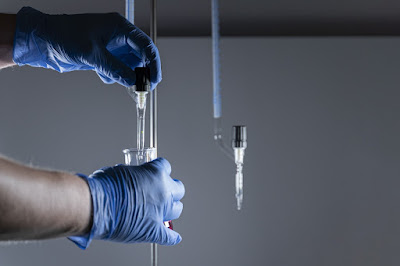An overview of Method validation
In this article, we will learn method validation fitness for purpose of the analytical method
- What is analytical method validation?
- What is the difference between method validation and verification?
- Why is the method validation necessary?
- When should methods be validated or verified?
- How should the method be validated?
What is analytical method validation?
Different international
documents have given the method validation definition like as per,
ICH Q2: the analytical
procedure is to exhibit that it is suitable for its intended purpose.
United States of
pharmacopeia USP: the process by which it's established by laboratory studies that the performance characteristics of the procedure meet the
requirement for the intended analytical application
ISO 9000: confirmation,
through the stipulation of objective proof that the demand of specific intended
use for application have been fulfilled
ISO/IEC 17025:
confirmation, by examination and provision of objective proof that the
particular requirement about the specific intended use is fulfilled
International vocabulary
of metrology: confirmation where the defined requirements are adequate for the
intended use.
Method validation is the
process of determining an analytical requirement and confirming that the method
under consideration has capacities consistent with the application
requirements. Inherent
in this is the need to evaluate the performance of the methods. The judgment of
method suitability is important. In the past, method validation led to
concentrating only on evaluating characteristics of the performance.
What is the difference between method validation and verification?
As per the United States
of pharmacopeia USP, the verification has processed the assessment of whether
the procedure
can be used for its intended purpose, under the actual conditions of
utilization for a specified drug substance or product matrix.
Method validation is the
process established by laboratory studies, that the performance characteristics
of the procedure meet the specification for the intended analytical
application. While method verification is the process of the evaluation of
whether the procedure can be used for its intended goal. In short, method
validation is the establishment while method verification is an assessment of
an analytical method that can be used for an intended purpose.
Why is method validation necessary?
By the analytical
method, we checked the quality of the material, product. The analytical method
is a way of valuing goods for trade purposes
When should methods be validated or verified?
A method should be validated when it is necessary to demonstrate that its performance characteristics are adequate for use for a particular purpose, for instance, laboratories shall validate non-standard methods, laboratory design or developed methods, the standard methods used except for their intended scope, amplification, and modification of the standard method.
Validation is also
expected when it is needed to illustrate the equivalence
of results obtained by two methods. For example, a newly developed method and
an existing standard or regulatory method. For standard methods such as those
published by USP, EP, ISO, or ASTM, validation by the laboratory using the
method is not necessary. However, the laboratory has to verify the performance
of the method.
How should the method be validated?
Once the primary method
development is concluded there are two approaches to the method validation the interlaboratory
comparison approach and a single laboratory approach. Regardless of the
approach, it is the laboratory using a method that is responsible for ensuring
that it is fit for the intended use.
Inter-laboratory
approach: it has been published in the literature regarding method validation
by dedicated interlaboratory comparison often referred to as collaborative
studies or cooperative studies, if a method is being formed which will have
wide ranges of use probably as a published standardized procedure, then a
collaborative study comprising the group of laboratories is probably the
preferred way of testing validation. Published method validated in this way is
demonstrated to be robust.
Single laboratory
approach: laboratories will from time to time find that a method is required
but not available as a published standard. If the method is developed for use
in one laboratory, for instance, because there is no common interest in the
method or because other laboratories are competitors then a single laboratory
approach is appropriate.
Summary
Method validation of
analytical is the process by which it's established by laboratory studies that
the performance characteristics of the procedure meet the requirement for the
intended analytical application. Method verification of the analytical method
processes the evaluation of whether the procedure can be used for its intended
goal. The method should be validated for the newly established method by the
laboratory. Method verification
should be performed for the published standard method by regulatory bodies.
There are two method validation approaches, inter-laboratory, and single
laboratory






Comments
Post a Comment